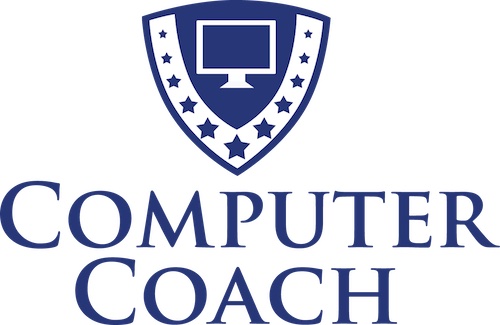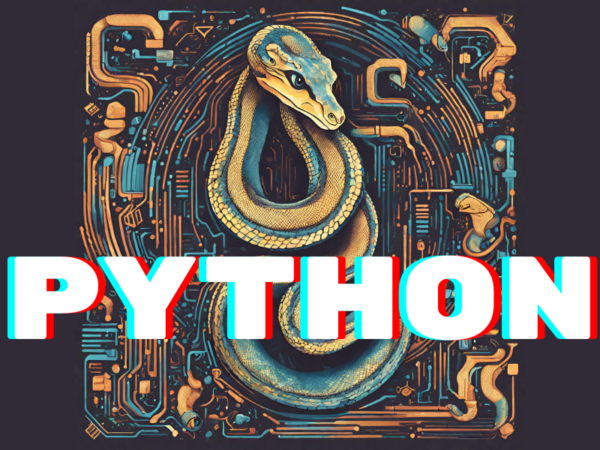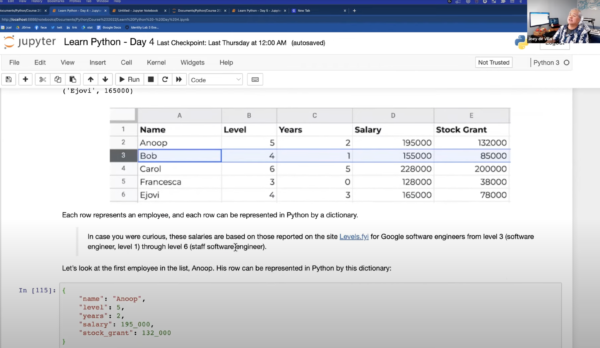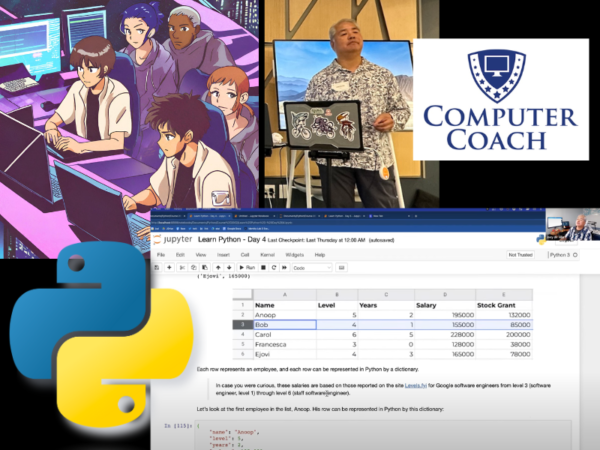
It’s happening again: Computer Coach is running another 10-session twice-a-week online evening Python course — and I’m teaching it!
This will be an online course happening twice a week for 5 weeks, on Mondays and Wednesdays from 6:00 p.m. to 10:00 p.m. (with hourly breaks), from Monday, July 15 through Wednesday, August 14. The course will be aimed at beginning programmers who are new to Python, and I can adjust it based the skill and knowledge of the class.
If you find my Meetup presentations entertaining and informative, wait until you see the way I teach programming!
Computer Coach
In my two decades doing developer relations work, I’ve found that every metropolitan area with a decent tech scene has a tech school whose people drive a lot of local tech events. Here in Tampa Bay, it’s Computer Coach!
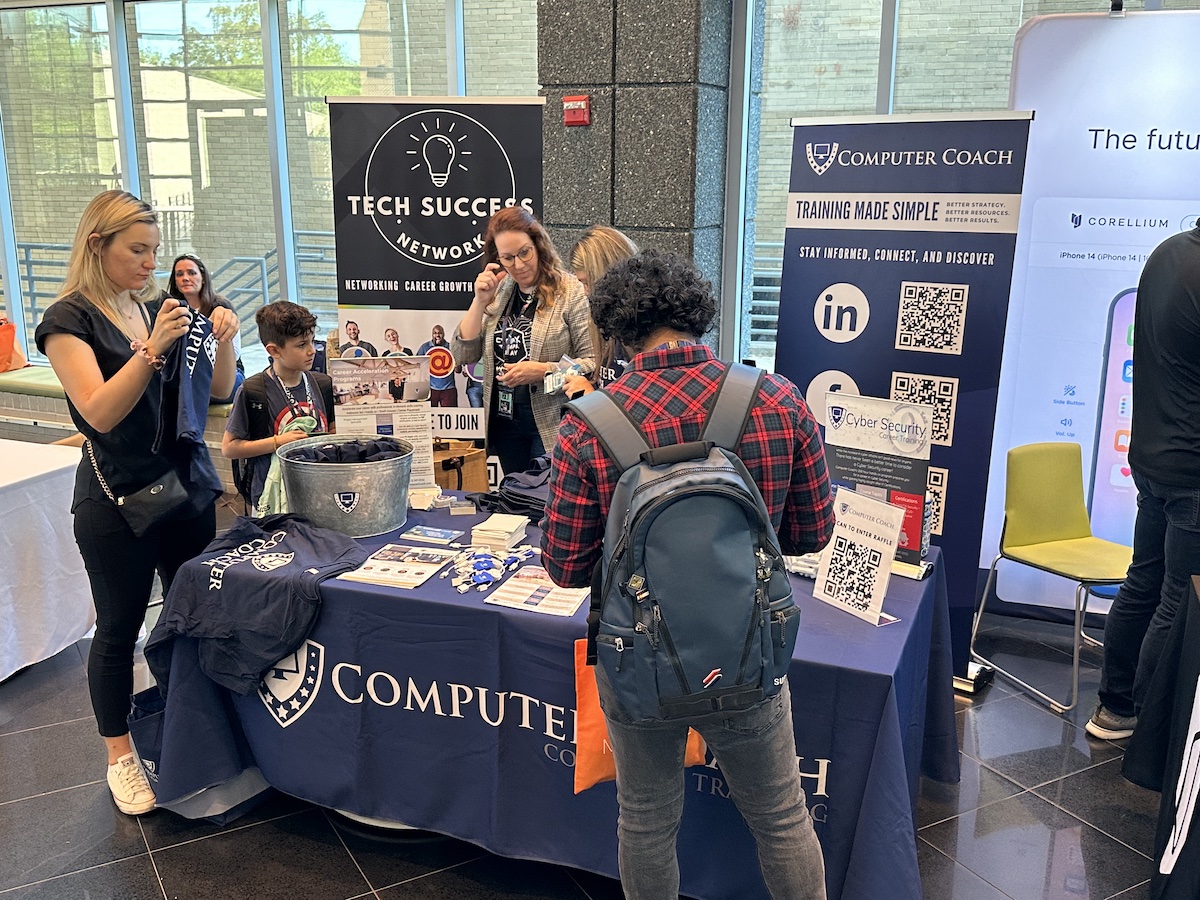
If there’s a tech conference, meetup, or gathering happening in Tampa or St. Pete, Computer Coach is probably part of it — organizing it, sponsoring it, or providing volunteer support. If someone in the Tampa Bay area has recently picked up some tech skills, chances are that they got them via Computer Coach. Wherever Tampa Bay tech is, so is Computer Coach, and I’m always pleased to work with them.
Python
The TIOBE Programming Community Index is a measure of the popularity of programming languages, and Python has been in the top position for the past little while. With its growth in popularity and as the preferred language of data scientists and machine learning, Python is a must-learn language.
What more can I say about Python? It’s my overall favorite programming language, it helps generate the weekly list of Tampa Bay tech events that appears on this blog, and thanks to its prominence in the fields of data science and artificial intelligence, it’s the hot language of the moment — despite having been first released in 1991 and being eclipsed by Ruby in the 2000s.
How you learn programming matters
Consider this screenshot from the Python course I taught in November and December 2023:
It shows us using a spreadsheet classic — a list of employees and some of their attributes — represented as a Python data structure: a list of dictionaries, which for all intents and purposes is a spreadsheet. We used this to analyze the salaries and stock grants of anonymized software developers at Google, as listed on levels.fyi, a site where you can see the compensations and benefits for different jobs and levels across tech companies. This isn’t the sort of example you’ll see in most courses or textbooks, but my goal is to try and make the exercises as meaningful as possible to the people taking the course. And you’ll learn interesting non-Python things along the way, including the existence of sites like levels.fyi and the inner workings of large tech companies!
(And you’d better believe we’ll cover harnessing ChatGPT’s and DALL-E’s power via the OpenAI APIs…)

Most importantly, I want to show aspiring Python programmers how to think in a problem-solving manner. Programming is really about finding the intersection of “I have a specific problem I’m trying to solve” and “I know how to get the computer to perform a certain set of tasks.”

Does this sound like the kind of course you’d like to take? If so, head on over to Computer Coach’s page for the Python Programming course, which describes the course in a more official way, and sign up! Don’t forget that the class starts Monday, July 15th!
